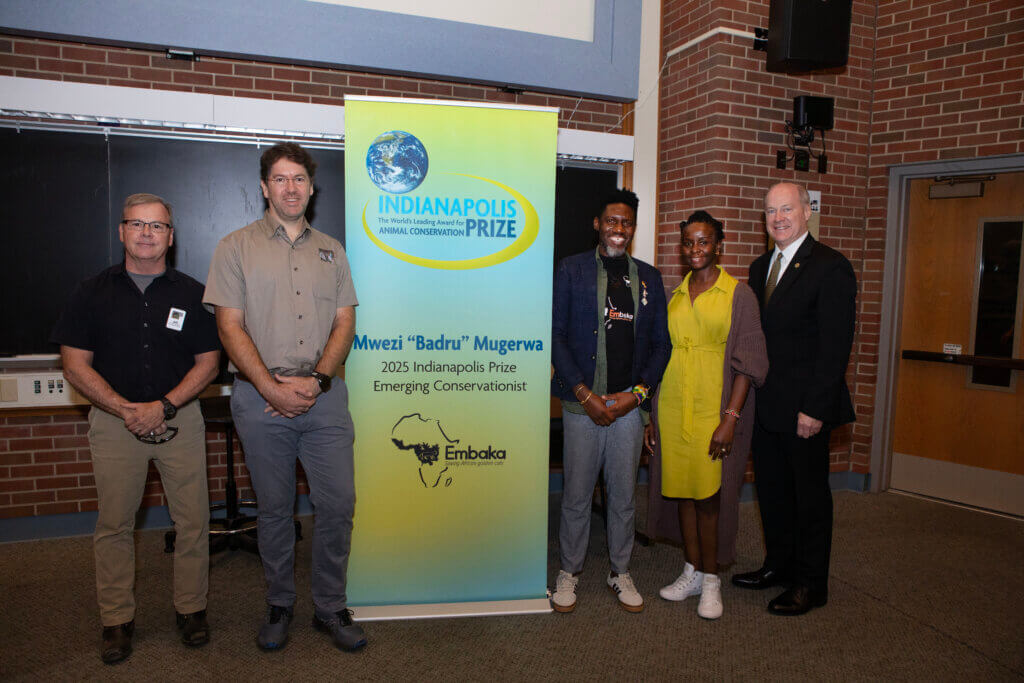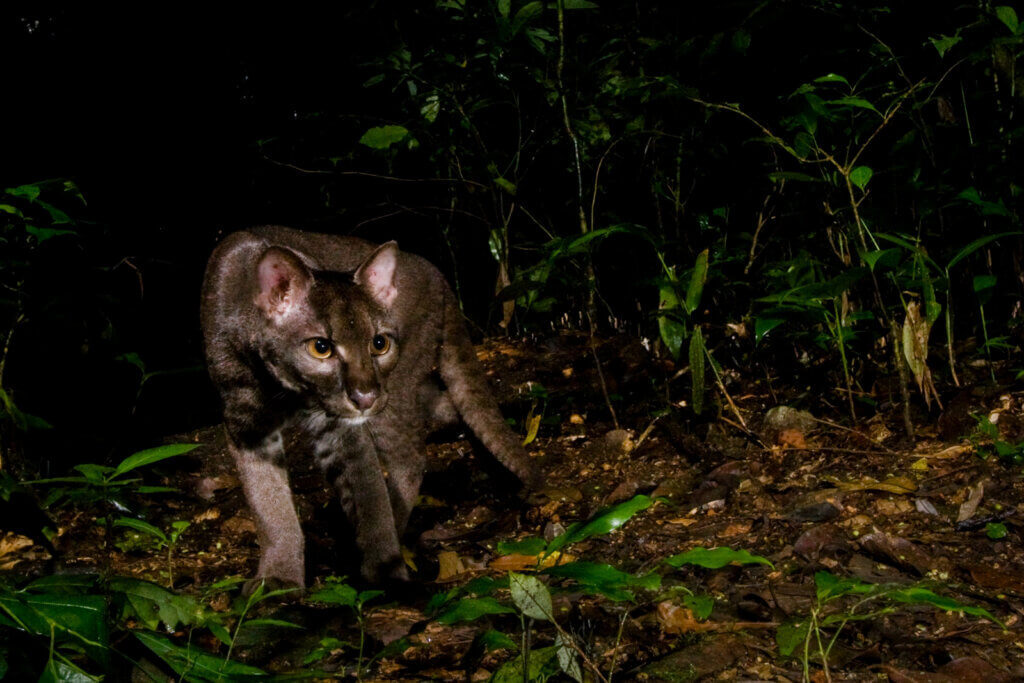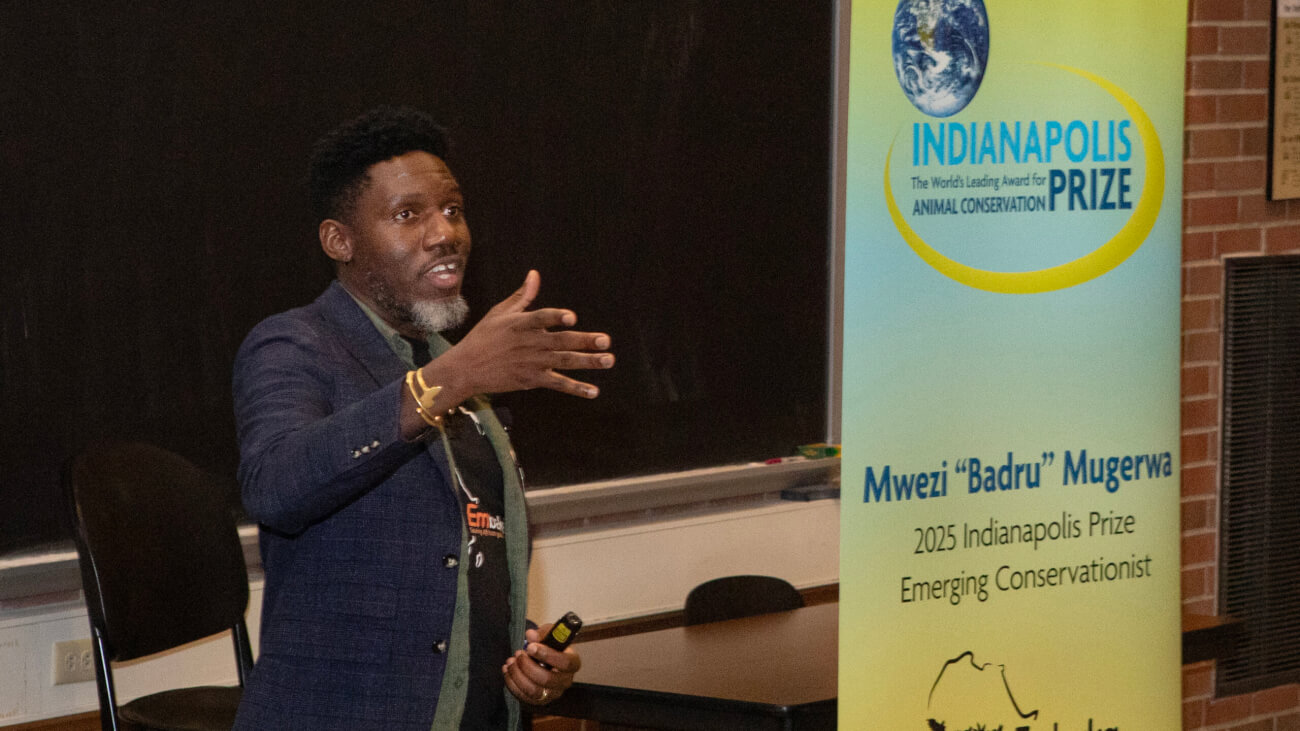Purdue veterinary students had a unique chance this week to hear first-hand from one of the world’s leading conservationists who is making a significant impact while still early in his career. Through a collaborative arrangement with the Indianapolis Zoo, the College of Veterinary Medicine hosted a visit by Mwezi “Badru” Mugerwa, the winner of the 2025 Indianapolis Prize Emerging Conservationist Award, on Monday, September 29, so he could share his message with Purdue DVM students.
The Emerging Conservationist Award, which comes with a $50,000 prize, recognizes a conservationist under 40 who has made a significant impact on saving an animal species or group of species. Mugerwa is a Ugandan conservationist, researcher, and the founder and director of Embaka, a grassroots community-based conservation organization focused on the preservation of the African golden cat.

Now a PhD candidate in biology and conservation, Mugerwa established the first-ever community-based anti-poaching conservation project focused on the African golden cat at Bwindi Impenetrable Forest National Park in Uganda. He also created the African Golden Cat Conservation Alliance (AGCCA), a network of African nationals implementing conservation activities for the African golden cat across the species range. Additionally, Mugerwa serves as the president of the Society for Conservation Biology’s Africa Region and is the president-elect for the Society for Conservation Biology Global.
Mugerwa began studying the African golden cat through research using camera traps, during which he captured a black and white image of an unknown animal in the forest. It turned out to be the African golden cat – an elusive species found only in the forests of equatorial Africa. Mugerwa said it was scary when he realized that hunters knew about the golden cat but he and his field assistants did not. Turning to the community, he came to understand how the wild cat’s primary threat—poaching—was directly connected to the livelihood of local people, as it is often caught in bushmeat snares.

Mugerwa emphasized that a major challenge today involves a disconnect between people and nature. They view having a national park in their area as a burden, not an opportunity. He stresses that an important aspect of conservation is engaging with communities, as communities hold the solutions. But he explains, if you don’t talk to them, you won’t know.
Mugerwa shared with the students how, since its founding in 2015, Embaka has focused on involving the community in conservation efforts. Through four programs—offering a range of help, from free oral health care and livestock, to assisting with credit and savings for families in exchange for a pledge not to poach—more than 2,225 community members have registered to support the African golden cat.
As for his research, Mugerwa and others now are using artificial intelligence to analyze camera trap data as they work with the AGCCA in 19 African countries to move toward a standardized model of observation to better study the population of African golden cats across the continent.
Mugerwa was chosen as this year’s recipient of the Emerging Conservationist Award through a two-stage selection process. The biennial award is made possible through a gift from the Kobe Foundation. Mugerwa is only the second person to receive the Emerging Conservationist Award.
The formal presentation of this year’s award occurred last weekend during the Indianapolis Prize Gala, presented by Cummins Inc., in downtown Indianapolis, where Dr. Lily-Arison René de Roland, a renowned scientist and biodiversity conservationist in Madagascar, was recognized as the winner of the 2025 Indianapolis Prize. Also a biennial award, the Indianapolis Prize includes a $250,000 award to support the recipient’s work in animal species conservation.

